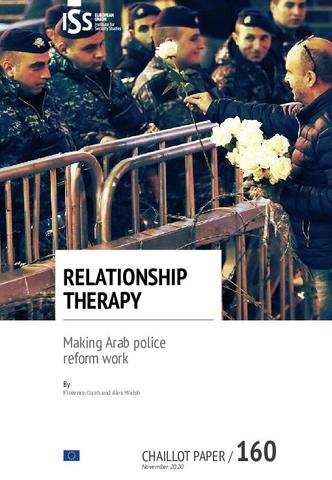You are here
Relationship therapy: making Arab police reform work

This Chaillot Paper looks at the police in the Arab world – an institution at the centre of political life but one that is very much under-researched. After years of attempts at reform, it seems that not much progress has been made in reducing corruption and violence, or increasing police efficiency. Why is it so hard to reform an institution so deeply embedded in the daily lives of citizens?
The paper contributes a new way of looking at police reform in a region where the rule of law is not fully implemented. It argues that it is not the institution itself that lies at the heart of the problem, but its relationship with society at large. Any reform attempts focusing solely on the police will therefore always miss half of the problem’s equation. This approach therefore opens new avenues for reflection, and invites a revision of existing reform programmes. It also considers that this type of police-community engagement is a way to reduce the democratic deficit long-term. Lastly, it finds that different Arab states show different degrees of reform potential.